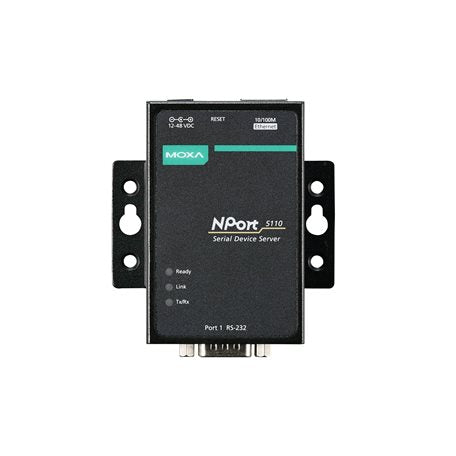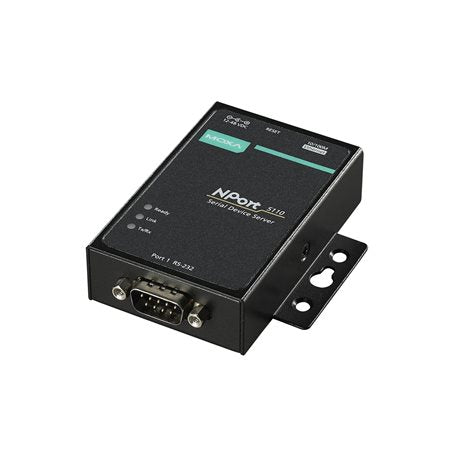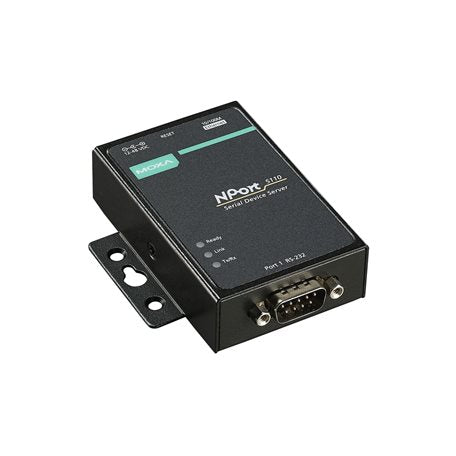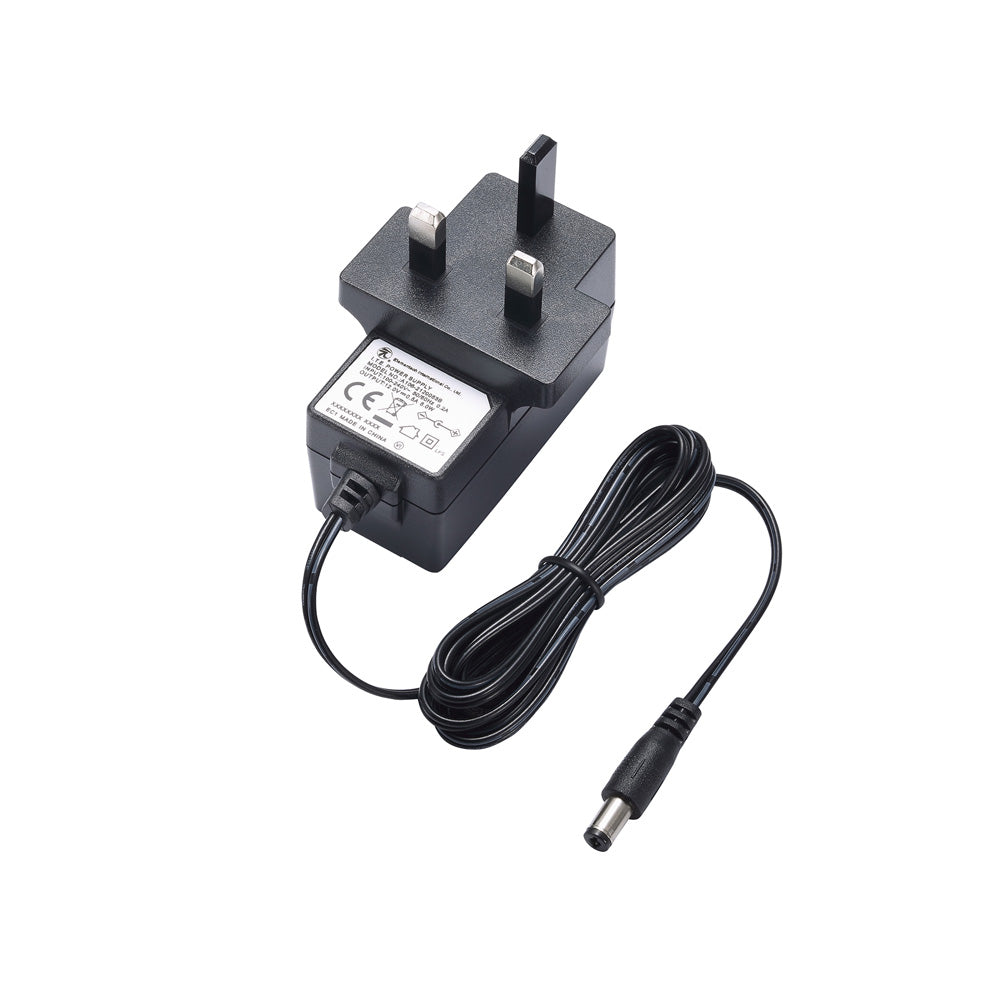- Real COM/TTY drivers for Windows and Linux
- Password security authentication on local database
- Standard TCP/IP interface and versatile operation modes
- Easy-to-use Windows utility for configuring multiple device servers
- Built-in 15 KV ESD protection for all serial signals
- SNMP MIB-II for network management
- Configure by Telnet, web browser or windows utility
Moxa NPort 5110 device servers are designed to make RS-232 serial devices network-ready in an instant. The compact size of the servers makes them ideal for connecting devices such as card readers and payment terminals to an IP-based Ethernet LAN. Use Moxa NPort 5110 device servers to give your PC software direct access to serial devices from anywhere on the network.
Cost-effective Serial-to-Ethernet Solution
Using serial device servers to connect legacy serial devices to Ethernet is now commonplace, and users expect device servers to be cost-effective and to provide a broad selection of useful functions. With its full support of Microsoft and Linux operating systems Moxa NPort 5110 Series provides the best choice for serial-to-Ethernet converters.
Adjustable Termination and Pull High/Low Resistors
In some critical environments, termination resistors may be needed to prevent the reflection of serial signals. When using termination resistors, it is also important to set the pull high/low resistors correctly so that the electrical signal is not corrupted. Since no set of resistor values is universally compatible with all environments, Moxa NPort® 5110 device servers come with jumpers for adjusting termination and pull high/low resistor values for each serial port.
Standard TCP/IP Interface and Broad Choice of Operation Modes
Moxa NPort® 5110 device servers can be configured for TCP Server, TCP Client, UDP Server/Client, Pair Connection, or Ethernet Modem mode, ensuring compatibility with software based on a standard network API (e.g., Winsock or BSD Sockets).
Real COM/TTY Drivers for Existing Software
The Real COM/TTY drivers provided with Moxa NPort® 5110 device servers allow you to continue using software designed for communicating through COM/TTY ports. Installation and configuration are painless, and allows your serial devices and PC to communicate seamlessly over a TCP/IP network. Using Moxa’s Real COM/TTY drivers is an excellent way to preserve your software investment while still allowing you to enjoy the benefits of networking your serial devices.
Easy to Troubleshoot
Moxa NPort 5110 device servers support SNMP, which can be used to monitor all units over Ethernet. Each unit can be configured to send trap messages automatically to the SNMP manager when user-defined errors are encountered. For users who do not use SNMP manager, an email alert can be sent instead. Users can define the trigger for the alerts using Moxa’s Windows utility, or the web console. For example, alerts can be triggered by a warm start, a cold start, or a change in password.
This product is export-ready and classified under an international HS Code for smooth customs clearance. TNS ships worldwide via DHL Express, providing fast and reliable international delivery.
For customers in Singapore, we offer free local shipping on orders above SGD $80 — no extra handling fees.
Please contact TNS for key shipping and compliance details to support both local and international logistics planning.











